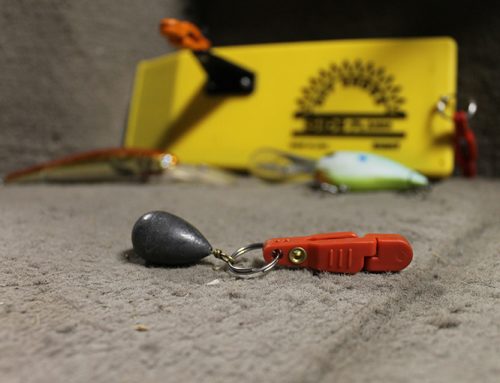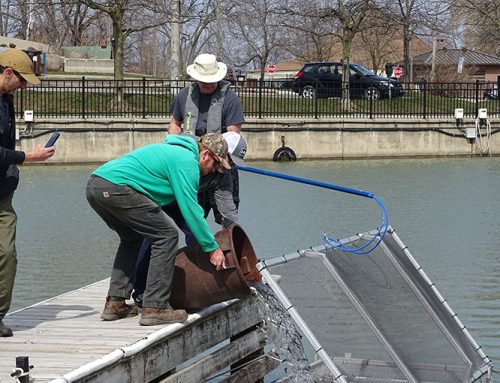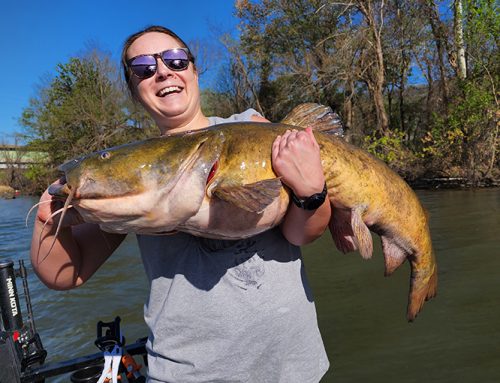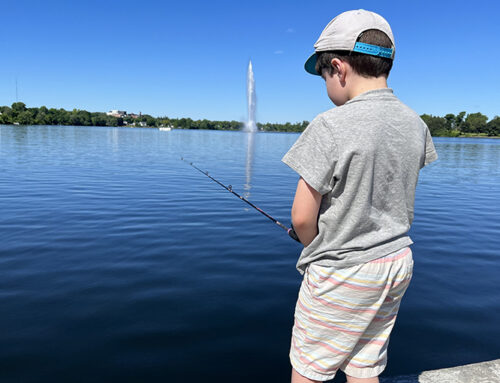
Increasingly, Canada’s natural gas and oil industry is a source of opportunities for Indigenous businesses such as Ontario-based Carbonix which has created a technology that turns an oil byproduct – petroleum coke – into a material used to treat industrial waste. Here’s its remarkable story.
Paul Pede, Carbonix president and CEO, and his two business partners developed a process using activated carbon to treat wastes. But it took a chance meeting between these Indigenous entrepreneurs and the head of a large oil sands company to unlock opportunities for both.
Turning waste into activated carbon
Pede and partners founded Carbonix in 2010, at Fort William First Nation in Ontario. They saw substantial opportunities to help resource industries remediate environmental impacts on land and water. The team reached out to experts in Trent University’s chemistry department in Peterborough. Through collaboration, the two groups tested different materials and ideas, coming up with an innovative process that could convert large amounts of petroleum coke and other wastes into activated carbon.
Activated carbon’s highly porous surface can absorb targeted industrial toxins and contaminants. At the same time, valuable metals or minerals can be recovered for added value. The resulting product could help operators to achieve reclamation targets while creating new economic opportunities. The team had found their niche technology.
To evolve their technology further, the Carbonix team worked with the university to move their process from the lab to a pilot at SGS Lakefield Research, an industrial testing facility. At the same time, Carbonix strengthened its relationships with innovation agencies across the country. With the backing of the Ontario Centre of Excellence and Alberta Innovates, Carbonix started to explore business interest in Alberta.
A chance encounter
At a 2016 event hosted by Fort McKay First Nation in northern Alberta, Pede met Suncor Energy’s former CEO Mark Little, who was interested in the technology. Pede intensified his work on carbon applications for the oil sands, with success – the company’s technology was selected as a finalist in the Clean Resource Innovation Network (CRIN) competition called Reducing Environmental Footprint Technology.
That led to Carbonix’s partnership with Suncor. With funding support from Alberta Innovates, Carbonix and Suncor carried out a proof-of-concept study to evaluate the use of activated carbon to treat oil sands tailings. Carbonix and Suncor plan to commission further testing of the technology at the Saskatchewan Research Council’s facility in Saskatoon. If tests are successful, Carbonix can pursue business plans for a scaled-up production unit for an oil sands facility.
Pede and his team also plan to expand their suite of carbon products to treat abandoned hard rock mines in Ontario and to leverage the technology’s capacity to recover valuable metals to create battery materials for the electric vehicle industry.
“When investors see a company has been awarded by recognized bodies like CRIN, it helps them to understand our company’s technology has been scrutinized closely,” Pede says. “We believe our technology can make a significant difference in addressing resource development issues while creating new economic opportunities.”

About CAPP
CAPP represents companies, large and small, that explore for, develop, and produce natural gas and oil throughout Canada. CAPP’s member companies produce about 80 per cent of Canada’s natural gas and oil and associate members provide a wide range of supporting services. CAPP is a solution-oriented partner to the world’s needs for affordable, clean, safe, and secure energy, and an important part of a national industry. CAPP’s mission, on behalf of the Canadian upstream oil and natural gas industry, is to advocate for and enable economic competitiveness, with environmentally and socially responsible performance. CAPP is dedicated to advancing reconciliation with Indigenous peoples, and is committed to ensuring Canada is positioned as the supplier of choice in a world that demands a lower-carbon energy future.
Posted as a paid partnership between Ontario OUT of DOORS and the Canadian Association of Petroleum Producers (CAPP).






Leave A Comment